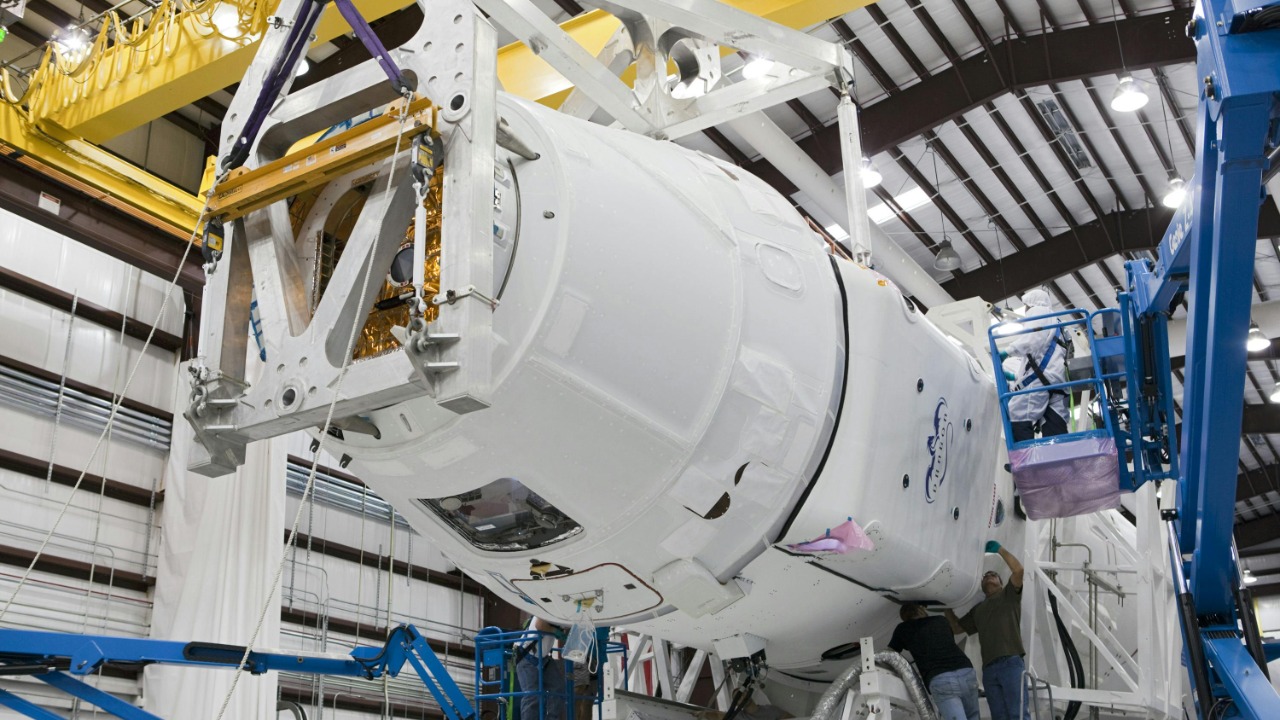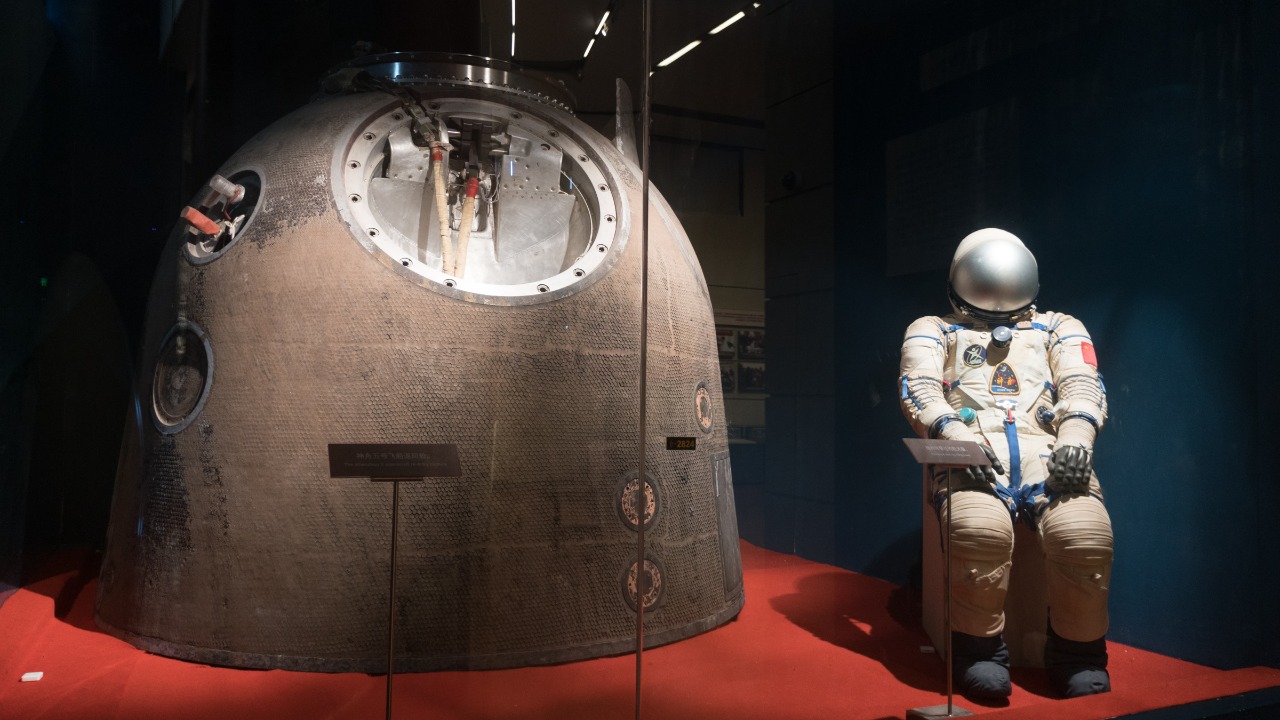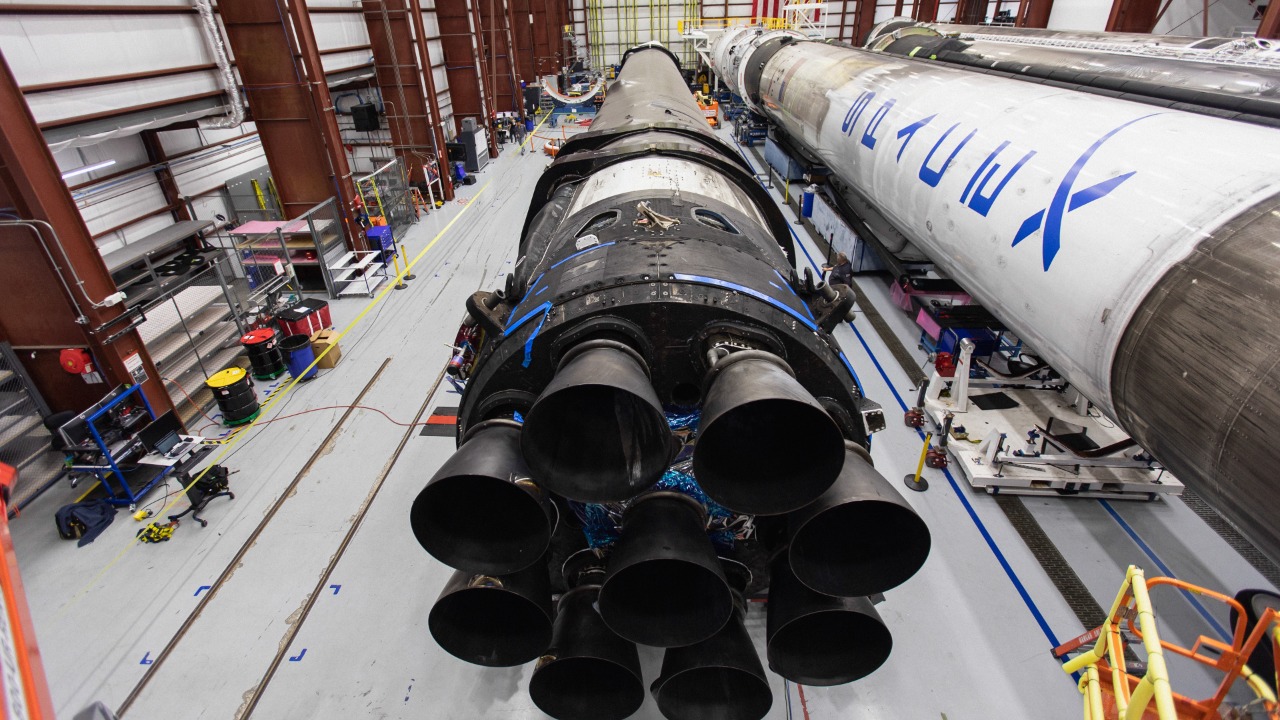China is making significant strides in the aerospace industry by developing its first reusable rocket recovery drone ship, positioning itself as a formidable competitor to SpaceX. This move is part of China’s broader strategy to enhance its space capabilities and reduce the costs of space exploration. The implications of this new technology could profoundly impact the global space race, altering both economic and strategic landscapes.
China’s Ambitious Space Vision

China’s ambitions in space exploration have grown significantly over the past few decades, marked by a series of milestones that underscore its commitment to becoming a major player in the global space arena. Historically, China’s space program began in the 1950s, but it wasn’t until the launch of the Shenzhou 5 mission in 2003 that China became the third nation to send humans into space independently. More recently, notable achievements include the Chang’e lunar exploration program and the successful deployment of the Tianwen-1 Mars rover. These accomplishments reflect China’s dedication to advancing its space capabilities and exploring new frontiers.
China’s substantial investment in space technology has profound implications for the global geopolitical landscape. The nation allocates significant resources to its aerospace advancements, evident in the establishment of the China National Space Administration (CNSA) and increased funding for space-related research and development. The financial commitment underscores China’s determination to become a leader in space exploration. As China continues to make progress, its advancements could prompt other countries to accelerate their space programs, potentially leading to a new era of competition and collaboration in space exploration.
The Technology Behind China’s Reusable Rocket Recovery System

The development of China’s reusable rocket recovery drone ship is a testament to its technological innovation and engineering prowess. This advanced vessel is designed to autonomously recover rockets that have been launched into orbit, similar to SpaceX’s autonomous spaceport drone ships. The Chinese drone ship is equipped with state-of-the-art navigation systems and precision landing capabilities, ensuring the safe retrieval of rocket stages. This technology not only reduces the cost of space missions but also enhances the sustainability of space exploration efforts.
Reusable rocket technology presents both advantages and challenges. The cost-effectiveness of reusing rockets is a game-changer for space exploration, significantly reducing the expenses associated with launching payloads into orbit. However, China faces technical and logistical challenges in developing and deploying this technology. Ensuring the reliability and safety of reusable rockets requires rigorous testing and refinement. Additionally, logistical considerations, such as the recovery and refurbishment of rocket stages, must be addressed to ensure the long-term viability of this approach.
Comparing China’s Approach to SpaceX

China’s approach to reusable rocket technology differs from SpaceX’s in terms of design philosophy and strategic goals. While SpaceX’s Falcon 9 recovery system focuses on vertical landing techniques, China’s drone ship employs a different method, reflecting its unique technological approach. The strategic goals of each country also vary; SpaceX, a private company, aims to revolutionize space travel and make it accessible to the masses, while China’s state-driven program emphasizes national prestige and strategic capabilities.
The global competition in the space sector is intensifying as China emerges as a formidable player. The advancements made by China could have significant implications for SpaceX and other global space entities. As China continues to make technological strides, the potential for collaboration or rivalry with other nations becomes increasingly relevant. The balance between cooperation and competition will shape the future of space exploration and determine how nations navigate the evolving landscape of space technology.
Impact on the Global Space Economy

Reusable rockets have the potential to revolutionize the commercial space industry by transforming the economics of space travel. The cost savings associated with reusing rocket stages can make space missions more affordable and accessible, opening up new market opportunities. China’s advancements in this area could catalyze further investment in space technologies and encourage the development of new business models. As the space economy continues to grow, the role of reusable rockets will become increasingly important in shaping the industry’s trajectory.
The future of space exploration holds immense economic potential, with forecasts predicting significant growth in the space economy over the coming decades. According to an analysis from Factories in Space, the in-space economy is projected to expand substantially, driven by advancements in technology and increased investment. China’s developments in reusable rocket technology could influence global investment patterns, encouraging other nations and companies to explore similar innovations and capitalize on the opportunities presented by the burgeoning space economy.
National Security and Strategic Considerations

The advancements in China’s space capabilities have significant implications for national security and strategic considerations. Space technology is increasingly recognized as a critical component of national defense, with the ability to enhance situational awareness and provide strategic advantages. China’s progress in this domain could shift the balance of power in space technology, prompting other nations to reassess their defense strategies and invest in their own space capabilities to maintain parity.
International collaboration and competition in space exploration are likely to intensify as nations seek to leverage their technological advancements. The potential for partnerships in space technology development is significant, as countries recognize the benefits of sharing resources and expertise. However, the competitive dynamics between major space-faring nations could also lead to heightened rivalry. As China continues to develop its space capabilities, the interplay between cooperation and competition will be a defining factor in the evolution of global space exploration efforts.